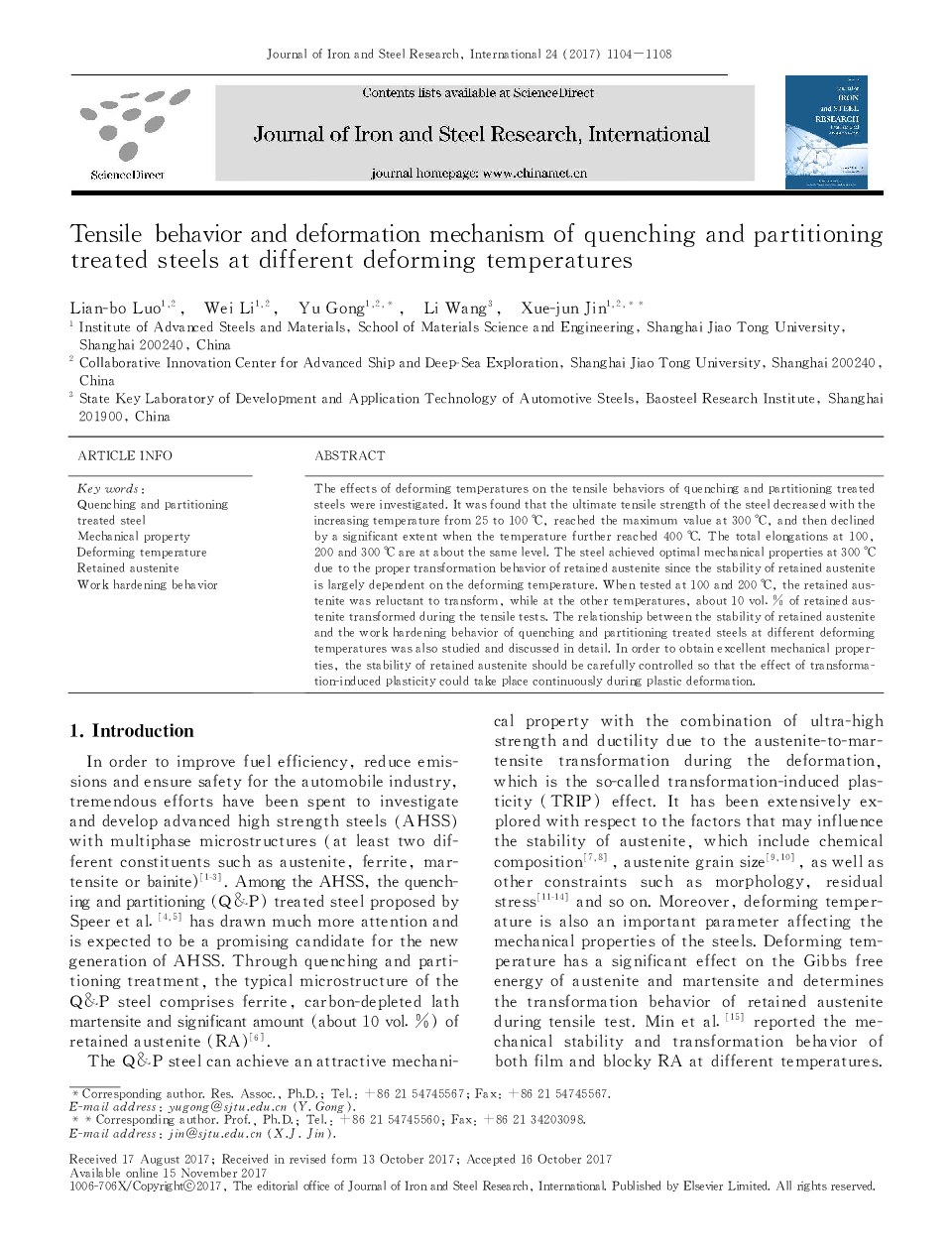| Article ID | Journal | Published Year | Pages | File Type |
|---|---|---|---|---|
| 8004145 | Journal of Iron and Steel Research, International | 2017 | 5 Pages |
Abstract
The effects of deforming temperatures on the tensile behaviors of quenching and partitioning treated steels were investigated. It was found that the ultimate tensile strength of the steel decreased with the increasing temperature from 25 to 100 °C, reached the maximum value at 300 °C, and then declined by a significant extent when the temperature further reached 400 °C. The total elongations at 100, 200 and 300 °C are at about the same level. The steel achieved optimal mechanical properties at 300 °C due to the proper transformation behavior of retained austenite since the stability of retained austenite is largely dependent on the deforming temperature. When tested at 100 and 200 °C, the retained austenite was reluctant to transform, while at the other temperatures, about 10 vol. % of retained austenite transformed during the tensile tests. The relationship between the stability of retained austenite and the work hardening behavior of quenching and partitioning treated steels at different deforming temperatures was also studied and discussed in detail. In order to obtain excellent mechanical properties, the stability of retained austenite should be carefully controlled so that the effect of transformation-induced plasticity could take place continuously during plastic deformation.
Related Topics
Physical Sciences and Engineering
Materials Science
Metals and Alloys
Authors
Lian-bo Luo, Wei Li, Yu Gong, Li Wang, Xue-jun Jin,
